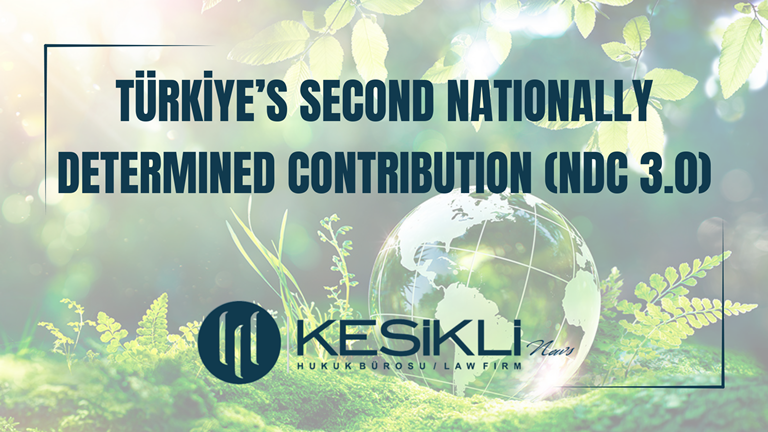Energy Sector in Turkey
Introduction
The government has established ambitious electricity generation objectives based on Turkey’s potential for renewable energy resources. The aim is that renewable energy will supply 30% of overall electricity generation by 2023. The 2023 overall power generation target is 120 gigawatt hours (GWh), which would require an investment of approximately $110 billion in the energy sector. Rapid population growth, the increasing demand for energy and energy supply security strategies are the main factors fuelling investment in the energy sector. Increased liberalisation will provide new opportunities for global and local market players and foster competition in the energy market, which will help to establish supply security.
Until the enactment of the Electricity Market Law 2001, which helped to liberalise the energy market, the private sector’s involvement in electricity production had been limited to the build-operate and build-operate-transfer model concession framework. The privatisation of the energy market began in 2004 with the aim of creating a more liberal and competitive marketplace. Inefficient assets that required investment were targeted during the first phase of privatisation, the most substantial of which was the privatisation of the electricity distribution network in 2013. The privatisation of natural gas-fired power plants and small hydropower portfolios began in 2008. Installed power capacity was approximately 28,000 megawatts (MW) in 2001, whereas it is now approximately 71,600 MW. Electricity production by publicly held power plants decreased from 41.6% of total production in 2004 to 21.2% at the end of June 2015.
Gross electricity consumption in 2010 was 210,434 GWh, but this figure rose by 21% in 2014 to 255,545 GWh. In 2014 Turkey imported 7,805 GWh of electricity and exported 2,696 GWh. These statistics illustrate that the energy market is primed for investment. The aim is that a total of 1,400 MW hydro projects will be privatised in 2015 and 2016 and hydro portfolios with a total capacity of 6,000 MW are intended to be privatised in the long term.
Turkey has great potential for power generation through renewable sources. However, its electricity generation capacity is highly dependent on imported natural gas, which has resulted in a large deficit. Accordingly, the government’s energy strategy aims to:
- establish energy supply security;
- reduce dependence on imported energy sources; and
- improve energy efficiency.
The energy strategy also aims to improve the investment climate for foreign investors, which has resulted in a number of global players establishing themselves in the market. If targets from the Energy Ministry’s 2015-2019 Strategic Plan are met, by 2019 Turkey’s energy mix will be approximately:
- 40% natural gas;
- 25% hydro power;
- 25% coal; and
- 10% renewables.
A feed-in tariff and incentive programmes to promote investment in renewable energy are available. Renewable energy projects that use locally manufactured equipment can take advantage of additional feed-in tariff rates. This encourages global suppliers to build their own manufacturing facilities in Turkey. The general investment incentive plan entitles the owners of power plants that use renewable energy sources to value added tax and customs duty exemptions. Incentives are also available for regional investments, which are granted to redress regional energy imbalances within the country. R&D activities are also encouraged through the investment incentive plan.
Turkey has great potential for solar energy production. It is expected that 600 MW of solar energy production licences will be granted in 2015 through several phased tenders. Limited infrastructure and concerns regarding effective energy production constitute the rationale behind the phased tendering structure.
Unlicensed projects provide another option for investors, as they are not subject to licensing conditions and no tender process is required. This option was intended to encourage cogeneration projects to:
- balance their uncontrolled production;
- meet their power needs; and
- sell remaining energy on spot markets.
However, investors that are unwilling to undertake the time-consuming licensing process for large-scale licensed projects have been attracted to unlicensed projects, especially in the solar energy market. According to Ministry of Energy estimates, solar energy production is expected to increase to at least 3,000 MW by 2023, which will require an investment of approximately $7 billion.
Turkey’s potential for wind energy production has not been backed up by investment. In 2007 the equivalent of 75 GW of licence applications were made in one day and many were granted. However, a large number of these projects could not be finished due to a lack of finance, which resulted in the failure to meet production capacity targets. Many licensees attempted to transfer their licences indirectly through the sale of shares, as the trade of licences was prohibited. This situation prompted the legislature to set out financial criteria for applicants and a pre-licence procedure was also introduced. Between April 24 and 30 2015, 1,095 applicants were made to the Energy Market Regulatory Authority for a total of 42,273.65 MW capacity. Capacity was limited to 3,000 MW.
Geothermal energy represents a relatively small portion of Turkey’s energy mix (1.18% at the end of June 2015). However, it is expected to increase considerably due to technological developments and investment in the exploration of resources. Studies are being conducted by government authorities to introduce new incentives to support investment in early-stage explorations, such as exploratory drilling. Government authorities are also considering the establishment of additional feed-in tariffs to promote investments in geothermal energy.
The waste and biomass industry is one of the energy market’s rising stars. It involves projects that use special fuel supplies, such as virgin wood, agricultural residues, food waste, industrial waste and co-products. Biomass power plants play an important role in preserving the environment due to the nature of the technology used. The main sources of environmental pollution are:
- domestic solid wastes;
- manure from animal husbandry; and
- organic waste from the food industry and agricultural activities.
Biomass power plants are extremely versatile in their elimination of this waste. The production of fertiliser as a by-product of the process is also important for sustainable agriculture and the preservation of natural water sources.
Although Turkey’s potential for biomass energy is promising, the number of completed projects is limited. As of November 2015, 57 biomass projects with an installed capacity of 277.5 megawatts electrical (MWe) and an operational capacity of 205.5 MWe had been licensed by the Energy Market Regulatory Authority. Landfill gas projects account for the bulk of biomass power generation (77% of installed capacity and 80% of operational capacity). Thermal biomass technologies like gasification and high-performance combustion have an installed capacity of 28% of total biomass power generation, but operational plants account for 2% of biomass power generation. Power generation through biogas production from solid waste (eg, manure or agricultural residues) has grown in the last five years; its installed and operational capacity now accounts for 14% and 15% of biomass power generation respectively. Wastewater treatment plants are built solely to eliminate corporate wastewater, their installed and operational capacity accounts of 3% of biomass power generation.
The feed-in tariff applied to biomass and biogas projects is $0.13 per kWh. Biomass projects receive the second-highest incentive rate after solar energy. The total feed-in tariff that can be applied to biomass projects is $0.18 per kWh if locally manufactured equipment is used.
The use of domestic energy sources is supported by an investment incentive system that favours the use of coal and lignite, which are abundant in Turkey. Coal-fired power generation made up 27.57% of total electricity production in Turkey by the end of June 2015. The country’s potential coal resources are still being exploited and new coal plants are under construction.
Turkey is one of Europe’s largest gas markets in terms of annual consumption rates and, unlike in many other European countries, consumption is growing steadily (1.7 trillion cubic feet in 2014). However, the country’s natural gas reserves are limited and as a result it imports approximately 98% of its natural gas from Russia, Azerbaijan, Algeria, Iran and Nigeria, primarily through the state-owned Petroleum Pipeline Corporation (BOTAS). Turkey’s geographical location – surrounded by the world’s leading oil and gas reserves (ie, the Russian Federation, the Caspian region, the Mediterranean, North Africa and the Middle East) – makes it a major transit country for the maritime and pipeline transportation of oil and gas.
The natural gas market is regulated by the Natural Gas Market Law (4646/2001), which requires BOTAS to reduce its import, wholesale and distribution market share. As a result BOTAS’s import contracts are being gradually transferred to other market players through tenders. However, BOTAS’s existing market share of imports still represents a large proportion of the natural gas import market.
Turkey is dependent on natural gas, but its gas storage facilities are still limited (approximately 3 billion cubic metres (m3)). Further investment in the construction of gas storage facilities is fundamental to prevent seasonal imbalances in the demand for natural gas and to reduce the financial losses caused by ‘take or pay’ contracts. The Natural Gas Market Law requires importers to provide guarantees to arrange available storage space for at least 10% of their imports. The government has also taken the initiative with the ongoing construction of the Salt Lake Natural Gas Underground Storage facility, which aims to optimise the natural gas pipeline network in Central Anatolia.
The aim is to reach a 500 million m3 working gas capacity when the first phase of construction is completed in 2016 and a one billion m3 working gas capacity when the second phase is completed in 2019. When the project is completed, a maximum of 40 million m3 of natural gas will be distributable to the natural gas network per day. The facility is planned to be fully operational by 2019. Other ongoing and government led gas storage projects include:
- the Russia-Turkey West Gas pipeline;
- the Russia-Turkey Blue Stream;
- the Iran-Turkey pipeline; and
- the Baku-Tblilisi-Erzurum pipeline.
Turkey’s oil reserves are located in the Batman, Adiyaman and Thrace regions. The country produces 61,000 barrels of petroleum and other liquids per day, which provides approximately 9% of Turkey’s oil consumption. The state-owned Türkiye Petrolleri Anonim Ortaklığı holds privileged rights for exploration and production activities. It collaborates with foreign players such as Shell in joint ventures for certain upstream activities. The potential of Turkey’s petroleum reserves has not yet been investigated fully, due to the need for high-value investments and political factors.
First published at: http://www.internationallawoffice.com/Newsletters/Energy-Natural-Resources/Turkey/Kesikli-Law-Firm/Perspectives-on-the-energy-sector
Let's Get Connected!



